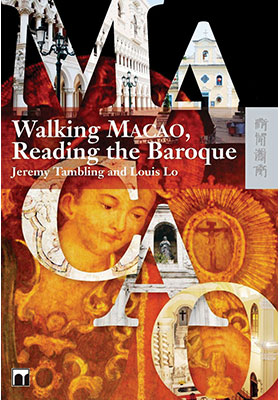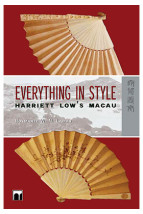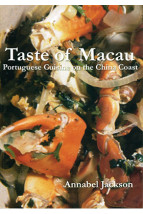Walking Macao, Reading the Baroque
(讀巴羅克,漫步澳門)
ISBN : 978-962-209-937-1
April 2009
272 pages, 7″ x 10″
- HK$195.00
Ebooks
Also Available on
Walking Macao, Reading the Baroque is a guide-book with a difference. It brings to the reader the art and architecture of Macao and the baroque treasures that make the territory so attractive. Lavishly illustrated, Walking Macao, Reading the Baroque helps the reader who wants to understand the complex history and layout of the city as a Portuguese ex-colony founded in the sixteenth century, and as a modern Chinese city.
As the authors consider the special nature of Macao’s baroque, they discuss whether its Chinese architecture—its temples, gardens and houses—is also baroque; and what is the importance of the new casino architecture, much of which imitates ‘the baroque’ in its postmodern character. Weaving discussion of Camões’ epic poem, The Lusiads, about Portuguese imperialism, and Chinnery’s paintings into the exploration of Macao’s present buildings, the book contains 125 original photographs that add to the unique perspective that it provides for the thoughtful visitor or the longstanding lover of the city.
To create this new way of looking at Macao, the authors draw on critical, cultural and ‘postmodern’ theory inspired by the baroque, discussing in particular what the ideas of Walter Benjamin, Jacques Lacan, Michel Foucault, Jacques Derrida and Gilles Deleuze can bring to our understanding of Macao and the baroque. The book gives a sophisticated reading of contemporary literary and cultural theory, and theory about cities, and helps the student understand this through the detailed reading it gives of the streets of Macao as a specific postcolonial and postmodern city.
This original and stimulating book examines Macao’s heritage, and asks as much about the cultural memories stored up in the city as it does about its new and exciting architecture.
“A book we have all been waiting for—I wish I could have written it. A magnificent evocation of historic Macao, the ‘capital of the sixteenth century’ in Asia, just as Paris was the capital of the nineteenth century in Europe. The authors are well versed in cultural theory, and in this book they purposely and fittingly adopt the pose of Benjaminian flaneurs as they take us on a cultural walk through some of the significant sites in this beautiful baroque city—before it is turned into ruins by money-grabbing gambling houses. A must-read for all visitors to Macao as well as students in architecture, cultural history and cultural studies.” —Leo Ou-fan Lee, Professor of Humanities, Chinese University of Hong Kong; author of City between Worlds: My Hong Kong
“Verbal description and photographs conspire here to present the city of Macao in vignettes of its colonial, ‘baroque’ architecture reflected upon from a postcolonial and postmodern perspective. Rich in words and images, a delightful book!” —Zhang Longxi, Chair Professor of Comparative Literature and Translation, City University of Hong Kong
“Macao is a city of immense interest, having served for centuries as a major site for the encounter of Western and Asian culture, yet it has rarely before received the scholarly attention it deserves. In this mould-breaking study the accumulated traces of Macao’s distinctive history are examined in a new light. Bringing an extraordinary range of learning to bear, Jeremy Tambling and Louis Lo invite us to join them on an illuminating intellectual and visual journey through this unique, multi-layered cityscape.” —David Clarke, Department of Fine Arts, University of Hong Kong
“This stimulating and visually stunning book can be read on a number of levels. It is at once a guide-book to Macao’s architectural heritage, and it would be a wonderful resource for anyone walking through the city. But it is also a guide to a way of thinking about the relationship between architecture, history, literature and critical theory, and the authors should be congratulated for drawing these together in a dazzling and original way.” —Jeremy Gregory, Senior Lecturer in the History of Modern Christianity, University of Manchester





